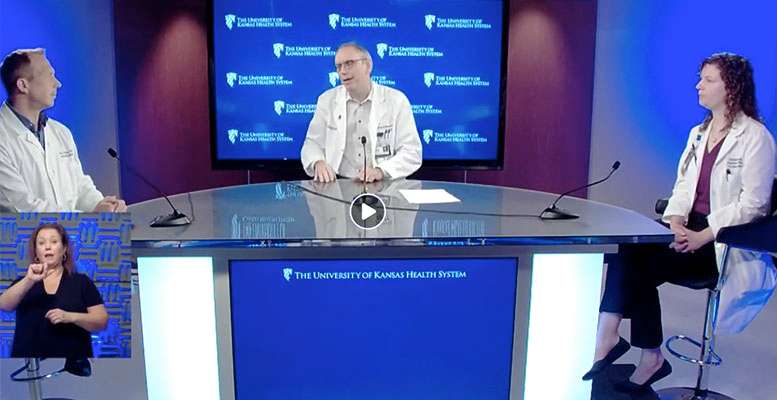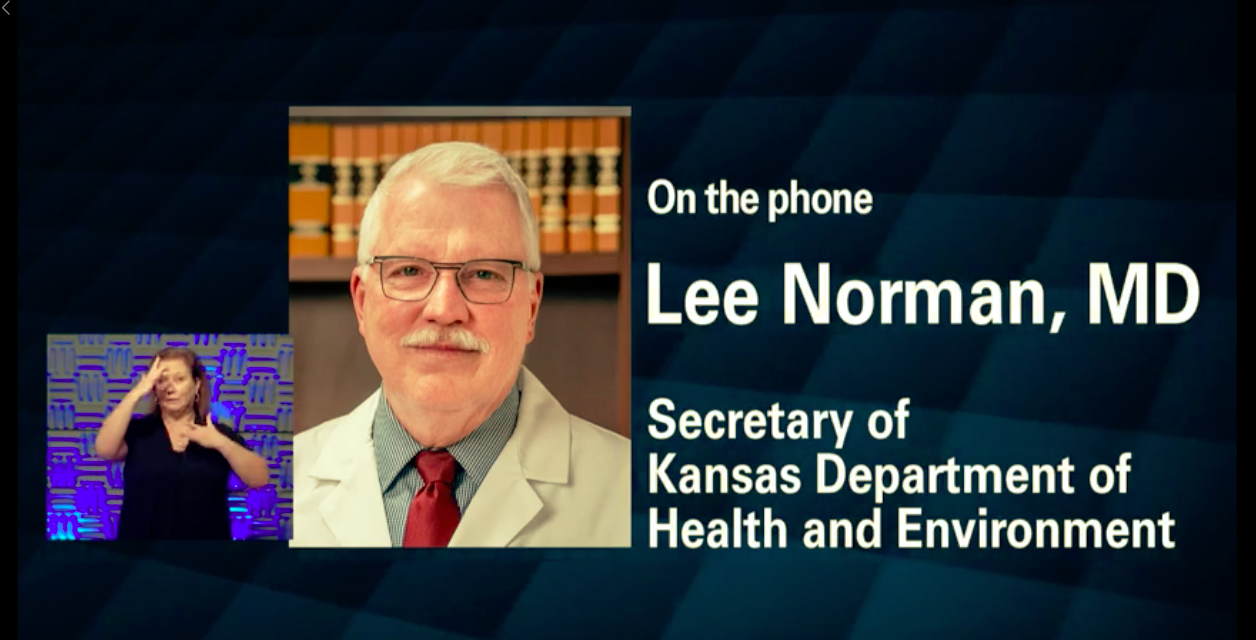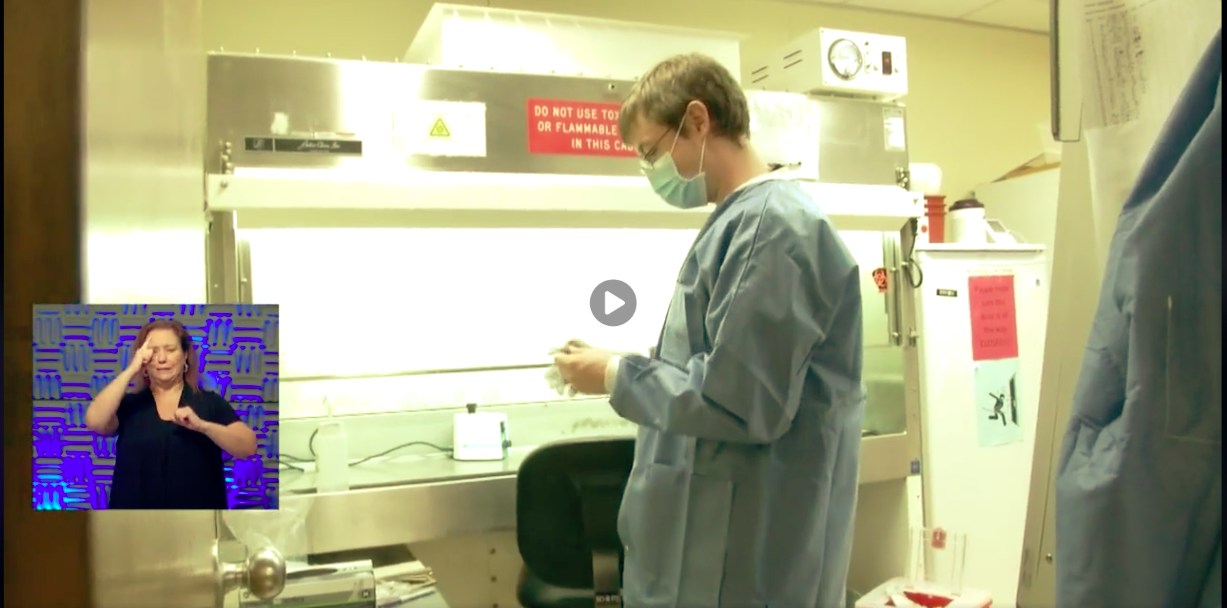
By CRISTINA JANNEY
Hays Post
Anti-body testing is going to be launched at the University of Kansas Health System in about two weeks, but the tests likely will not give Kansans the answers they want about coronavirus.
During a health system news conference Thursday, health care professionals said anti-body tests will not be good at predicting immunity to COVID-19. Physicians still do not know if patients develop an immunity to COVID-19 once they have recovered from the illness.

Lee Norman, secretary of the Kansas Department of Health Environment, said during the news conference anti-body testing will likely be used to test populations, such as meatpacking workers, nursing home workers and residents, or residents of entire counties to determine the prevalence of the illness.
These tests can help find people who may have been asymptomatic, Norman said.
Early studies indicate plasma donation from people who have recovered from COVID-19 may help in treatment. Anti-body testing could help identify potential plasma donors, Norman said.
Dr. Dana Hawkinson, medical director of infection prevention and control at the health system, said a study on infection aboard a cruise ship indicated about 80 percent of those infected were symptom-free.
"We are learning more and more about this disease from the original published Chinese experiences," Hawkinson said. "We are seeing more and more people who have the infection and aren't showing symptoms."
Dr. Steven Stites, KU Health System chief medical officer, said one of the most important components of testing is accuracy.
The test that KU Health System hopes to use has a 99 percent specificity rate, said Rachel Liesman, Ph.D., director of microbiology at the health system.
In a population that has a high prevalence of the illness, you are more likely to have more correct positive tests. However, if you have the general population, which may have only a 2 percent to 3 percent rate of illness, the likelihood of false positives is higher, Liesman said.
"We want to select patients to test that have a probability of being positive," Liesman said. "We want to be careful in blanket using this for patients that have no history of symptoms and we don't know what we are really going to do with those results."

Stites said anti-body testing may be helpful to individuals if they have had symptoms of the virus. An anti-body test could help your physician determine a proper course of action for treatment for you specifically.
He gave the example of student athletes who may be coming back to school in the fall. Cardiac issues may be present in COVID-19 patients months after they have had the illness.
If an athlete tests positive under an anti-body test, his or her physician might request further cardiac screening.
Stites said the anti-body testing will be more important for health officials to statistically analyze populations.
"We are not acting on individual tests to tell somebody to do something. Rather, we are trying to study a population as a whole," he said. "That is a really important difference.
"We are getting the power of looking at a population versus — 'Because you have this anti-body you can go out and play in the garden.' The reality is that statement is probably not correct based on anti-body testing."
Stites said this means the health pillars of wearing a mask, washing your hands not touching your face and keeping 6 feet away should still be followed.
The physicians emphasized the nasal swab testing is still the best way to determine if a patient is currently infected with COVID-19.
Most people who develop anti-bodies will not do so until two to four weeks after infection, Hawkinson said.
Anti-body testing requires a blood draw, and for that reason will likely not be conducted via drive-through clinics as the nasal swab tests have been.
"What I don't want people to believe yet is if they have the anti-body, they are protected from getting the coronavirus a second time," Stites said. "My guess is that's true, but I'm not sure that you want to put your entire health in a guess."






